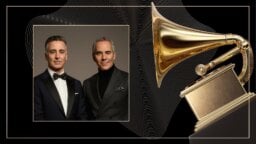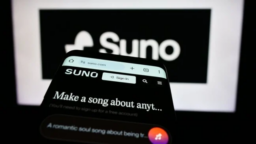Universal Music Group (UMG) has announced a new partnership with SoundLabs, an AI technology company focused on ‘ethically’ trained tools for music creators.
The collaboration will equip UMG’s artists and producers with AI technology through SoundLabs‘ MicDrop, an AI vocal plug-in, UMG announced Tuesday (June 18).
MicDrop, set to launch this summer, is a real-time vocal plug-in that allows artists to create high-fidelity vocal models using their own voice data.
Unlike some AI tools, artists retain complete ownership and creative control over their models. MicDrop is compatible with all major digital audio workstations and comes in AU, VST3, and AAX formats.
The tool enables artists to perform various vocal transformations such as voice-to-voice, voice-to-instrument, speech-to-singing, and language transposition.
SoundLabs was founded by Grammy-nominated producer and composer, software developer, and electronic artist BT. With a career spanning over 25 years, BT has worked with numerous A-list artists including David Bowie, Madonna, Sting, Death Cab for Cutie, Peter Gabriel, and Seal, and scored #1 box office and Oscar-winning films such as Monster and The Fast and the Furious.
“Artificial intelligence, when used ethically and trained consensually, has the promethean ability to unlock unimaginable new creative insights… We are designing tools not to replace human artists, but to amplify human creativity.”
BT, SoundLabs
As a software developer, BT has created music tools that have generated over $70 million in gross sales. He has developed and patented audio plugins like Stutter Edit, BreakTweaker (iZotope), Polaris, and Phobos (Spitfire Audio), among others.
“It’s a tremendous honor to be working with the forward-thinking and creatively aligned Universal Music Group. We believe the future of music creation is decidedly human,” said BT.
“Artificial intelligence, when used ethically and trained consensually, has the promethean ability to unlock unimaginable new creative insights, diminish friction in the creative process and democratize creativity for artists, fans, and creators of all stripes. We are designing tools not to replace human artists, but to amplify human creativity.”
SoundLabs’ founding team also includes software developers Joshua Dickinson and Dr. Michael Hetrick of Unfiltered Audio.
UMG said the partnership is in line with its commitment to responsible AI use in music. The company recently collaborated with instrument maker Roland — known for its synthesizers and drum machines, among other things — to establish Principles for Music Creation with AI, advocating for transparency and artist control in this evolving field.
Commenting on the new deal with SoundLabs, Chris Horton, SVP, Strategic Technology at Universal Music said, “UMG strives to keep artists at the center of our AI strategy, so that technology is used in service of artistry, rather than the other way around.”
“BT understands how performers view and value their voices, and SoundLabs will allow UMG artists to push creative boundaries using voice-to-voice AI to sing in languages they don’t speak, perform duets with their younger selves, restore imperfect vocal recordings, and more.”
Chris Horton, Universal Music Group
“We are thrilled to be working with SoundLabs and BT, who has a deep and personal understanding of both the technical and ethical issues related to AI. Through direct experience as a singer and in partnership with many vocal collaborators, BT understands how performers view and value their voices, and SoundLabs will allow UMG artists to push creative boundaries using voice-to-voice AI to sing in languages they don’t speak, perform duets with their younger selves, restore imperfect vocal recordings, and more.”
The partnership with SoundLabs comes as UMG continues to campaign for the responsible and ethical use of AI in the music industry. Back in October, UMG partnered with BandLab Technologies, parent company of social music creation platform BandLab, for what they described as “an expansive, industry-first strategic relationship concentrated on artificial intelligence.”
That partnership sought to “advance the companies’ shared commitment to [the] ethical use of AI and the protection of artist and songwriter rights,” UMG said at the time.
UMG is also among the major music companies campaigning against the exploitation of music for AI development without proper consent, credit, or compensation. The International Confederation of Music Publishers, of which UMG is a part, launched an online resource called RightsAndAI.com in April, where rightsholders can reserve their rights against unlicensed exploitation of their works.
Music Business Worldwide





